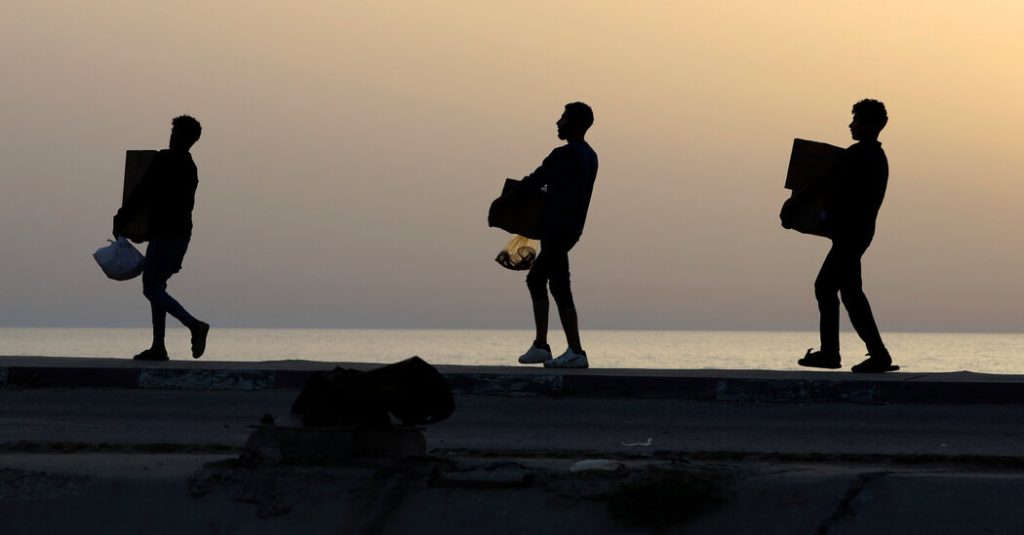The U.S. military and allies have attached a temporary pier to the Gaza shoreline in an effort to deliver humanitarian aid to Palestinians in the besieged strip. However, logistical challenges have hindered the distribution of relief, with trucks being looted and security concerns leading to suspensions of operations by aid agencies. The complexity of operating in a war zone has slowed down the delivery of medical supplies and food, exacerbating the dire situation in Gaza as casualties continue to rise. Despite initial difficulties, the pier project is the Biden administration’s attempt to alleviate the humanitarian crisis in Gaza, using a joint logistics over the shore capability to transport aid.
Critics had foreseen the logistical nightmare that came with the pier project, as U.S. troops are not allowed on the ground in Gaza, limiting the ability to ensure the safe distribution of aid. The situation in Gaza has been described as a desperate one, with Palestinians experiencing hunger and resorting to forcibly taking aid from trucks. The looting has been attributed to the desperation of people trying to feed themselves and their families, as well as black marketers selling supplies at inflated prices. The lack of police escorts to protect aid convoys has made it extremely difficult to distribute assistance in the area.
The pier project, named JLOTS, is an attempt to bring in much-needed humanitarian relief to Gaza, with the goal of eventually ramping up to 150 trucks a day. However, the operation has so far fallen short of this target, with looting incidents leading to operational suspensions. The involvement of about 1,000 American troops in setting up the pier off the coast has not proven to be sufficient to ensure the effective distribution of aid to those in need. Military officials have emphasized that the distribution of humanitarian aid can be more challenging than setting up the infrastructure for delivery.
Stakeholders including aid organizations and U.S. officials have highlighted the importance of proper planning and coordination to effectively deliver aid to the areas that need it the most. While some food and goods have been entering Gaza, many residents cannot afford to purchase them after months of war without regular income. The cash crisis in Gaza has further underlined the significance of aid to help impoverished Palestinians. Efforts to streamline aid delivery have been made, and alternative routes have been used to ensure that convoys reach their destinations safely.
Diplomats and aid organizations have criticized the pier project as costly and inefficient, with Pentagon officials noting that little consultation with the military was carried out before its implementation. The initiative was hastily put in place after estimates that it would take two months to complete. Even if all logistical challenges are resolved, the sea operation is seen as less efficient than a land route for delivering aid. Bottlenecks at border crossings, Israeli-imposed restrictions, and protests have further complicated aid delivery in Gaza. General Votel stressed that the responsibility for aid delivery lies with the international aid community and the Israel Defense Forces, as Gaza remains a combat zone with ongoing challenges.








